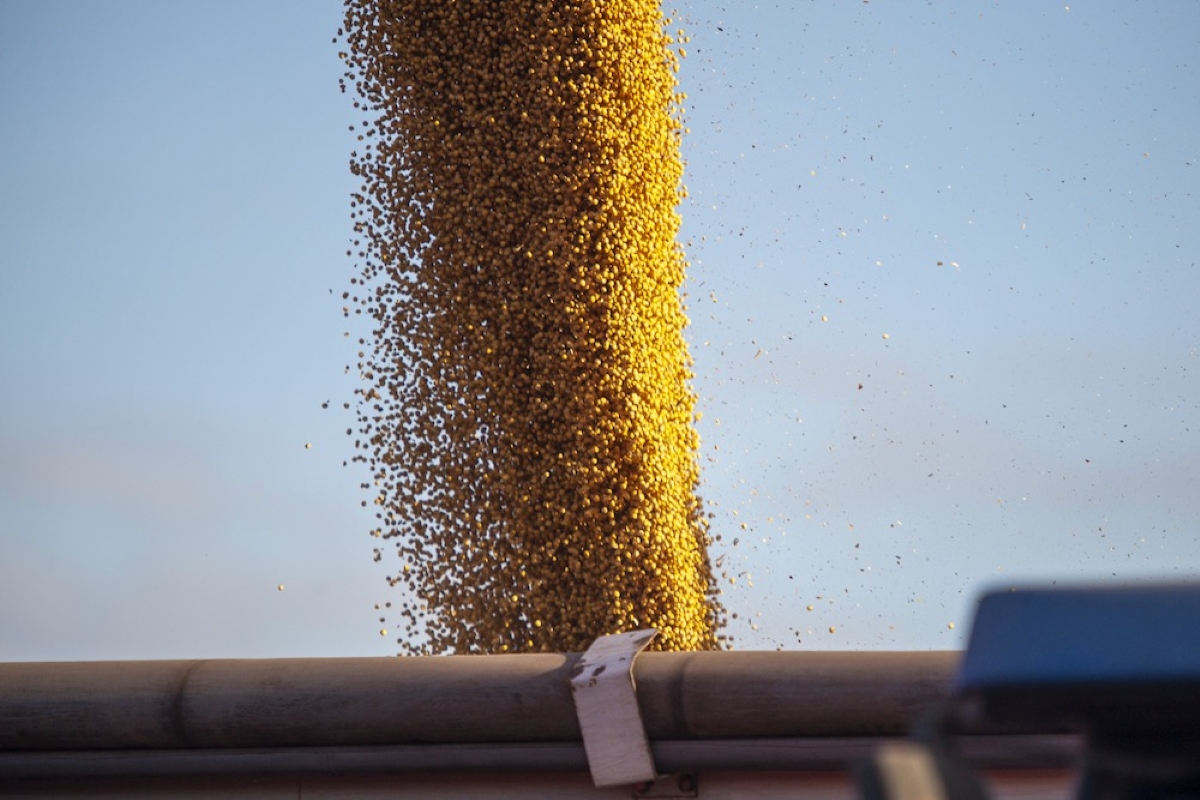Days before implementation, the Canadian Grain Commission repealed grading changes in response to complaints from producer groups.
In a news release, Friday, the CGC simply stated it was repealing the alignment of primary and export tolerances for test weight and total foreign materials for Canada Western Red Spring, Canada Western Hard White Spring, Canada Western Extra Strong, Canada Western Soft White Spring and Canada Northern Hard Red.
It also repealed the alignment of total foreign material tolerances for Canada Western Amber Durum.
On July 27, traditional sparring partners the Wheat Growers Association (WGA) and National Farmers’ Union (NFU) issued a joint statement decrying the announced changes that would have seen the export grade standard applied to deliveries to country elevators.
Read Also

Brazil to reap record soy crop in 2025/2026, increase exports
Brazil’s Conab said the country will reap a record soybean crop of 177.6 million tons in the 2025/2026 harvest year, according to data released on Thursday.
They joined Sask Wheat and the Agricultural Producers Association of Saskatchewan (APAS), who issued a statement on July 17 calling for a halt to the grading changes, calling them “ill-considered and finalized hastily” as well as alleging it was done without proper producer consultation.
Historically there have been primary and export standards for wheat, and the primary standard was applied at country elevators where farmers deliver their grain.
“The NFU and WGA disagree on many policy matters but are united in their opposition to the decision to harmonize primary and export standards for wheat,” the statement read.
Under current rules, wheat must weigh a minimum of 60.1 pounds a bushel, or it will be downgraded to no. 2 wheat. Under the proposed changes, which were to come into force August 1, they’d need to weigh at least 63.3 pounds per bushel to avoid downgrading.
“Farmers across the prairies will soon be harvesting wheat that under the current rules would be graded as #1, but as of August 1, 2023 they will be forced to sell it at lower prices as a #2 instead, if the changes by the Canadian Grain Commission come into effect as planned,” Daryl Fransoo, WGA chair, said in the statement.
Terry Boehm, former president of the NFU, said in the statement the current regulations recognize the variability of growing conditions across the region and that justifies the slightly lower bushel weight in the country under the current regulations.
“Loads that grade #1 under current rules often exceed the minimum standards, allowing grain companies to blend country deliveries to ensure the export standard is met when they assemble shipments at their port terminals,” Boehm said.
He added the grade change will “…take money from farmers’ pockets.”
The proposal was brought before the Western Standards Committee, which the WGA and NFU are both members of, and met with “…opposition from virtually all the farmers on CGC’s Western Standards Committee.”
Initially the WGA offered “cautious support.”
“The updated standards are founded on science-based outcomes regarding sprouting, test-weight and foreign material tolerances,” WGA said in a media release in June.
The Western Grain Elevators Association (WGEA) spoke in favour of the grading changes, saying the harmonized standards will make payment to farmers fair as it means farmers will be paid for the quality they grow.
Otherwise, they’re harkening back to the Canadian Wheat Board days, when wheat was pooled, and farmers were paid an averaged-out price, said Wade Sobkowich, WGEA’s executive director in an interview with the Manitoba Co-operator.
WGEA lobbied for standard harmonization, CGC records show.
Blending of high and low-quality wheat can only do so much, Sobkowich added. More stringent standards will allow grain handlers to meet customer specifications, otherwise companies may have to specify test weight or foreign matter standards in their contracts, he said. They don’t want the grading system to become irrelevant.
–Geralyn Wichers reports for the Glacier Farmmedia network from Steinbach, Man.















